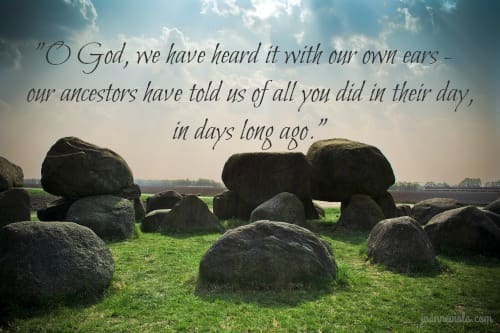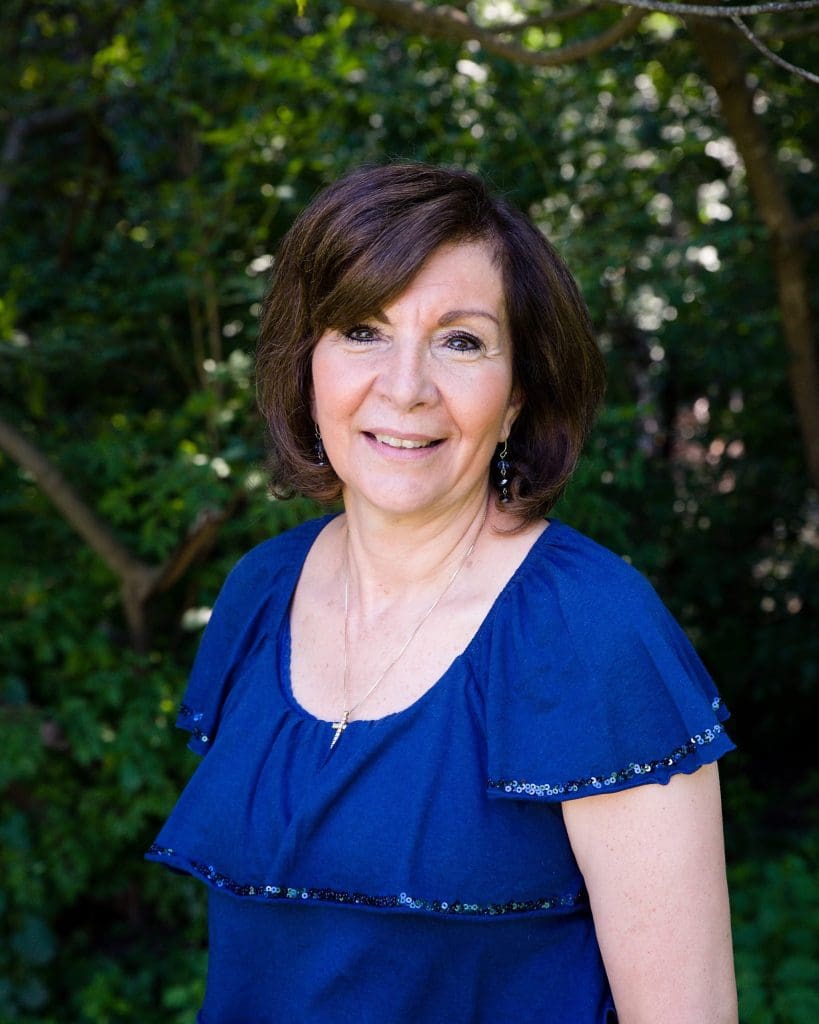The story has always been a favorite of mine. Joshua was going to lead the people into the promised land. There was only one obstacle before them – the Jordan River needed to be crossed.
The river was in its spring flood stage as a result of the winter runoff from Mount Hermon. As soon as the feet of the priests carrying the Ark touched the water at the river’s edge, the waters abruptly stopped flowing.
The water flowed up unto that point and began to back up. The water below that point flowed on to the Dead Sea.
The priests carrying the Ark stood in the middle of the riverbed, on dry ground, while the people all passed them by crossing to the other side.
Then Joshua instructs twelve men, one from each tribe, to go back to the middle of the river and pick up one stone which would be used to construct a memorial.
“Each of you must pick up one stone and carry it out on your shoulder – twelve stones in all, one for each of the twelve tribes of Israel.” (Joshua 4:5, NLT)
The stones were to be carried on their shoulders.
 I always had an image in my mind of small stones being stacked. But those simple words – “on their shoulders” – tells me these were not small stones at all. Turning to my commentary, I discover they weighed about one hundred pounds each.
I always had an image in my mind of small stones being stacked. But those simple words – “on their shoulders” – tells me these were not small stones at all. Turning to my commentary, I discover they weighed about one hundred pounds each.
The story, found in Joshua Chapters 3-4, has been in my thoughts for a few days …
Our burdens can at times weigh on our shoulders much like a hundred pound boulder. We must pick up our heavy burdens and bring them to Him.
“Give your burdens to the Lord, and he will take care of you. He will not permit the godly to slip and fall.” (Psalm 55:22, NLT)
As we lay those burdens as a memorial,
those very burdens will become a place of celebration.
The mere sight of the memorial was reminder to the people of the power and might of our God.
They did not carry those stones from place to place. The weight of the stone, and our burdens, is felt no longer as the memorial stays behind. It is the memory which moves forward with us.
The memorial then, and our memories now, serve one purpose:
“In the future your children will ask you, ‘What do these stones mean?’ Then you can tell them …” (Joshua 4:6, NLT)
We need to tell the stories to future generations. Future generations will ask questions and we must provide the answers.
“O God, we have heard it with our own ears – our ancestors have told us of all you did in their day, in days long ago.” (Psalm 44:1, NLT)
Our memories are to be constant reminders of our God
who works wonders for His people.
Photo 1 by Sean Stratton on Unsplash
Photo 2 by Joeri Römer on Unsplash
Today I am joining … Destination Inspiration and Tune In Thursday .



